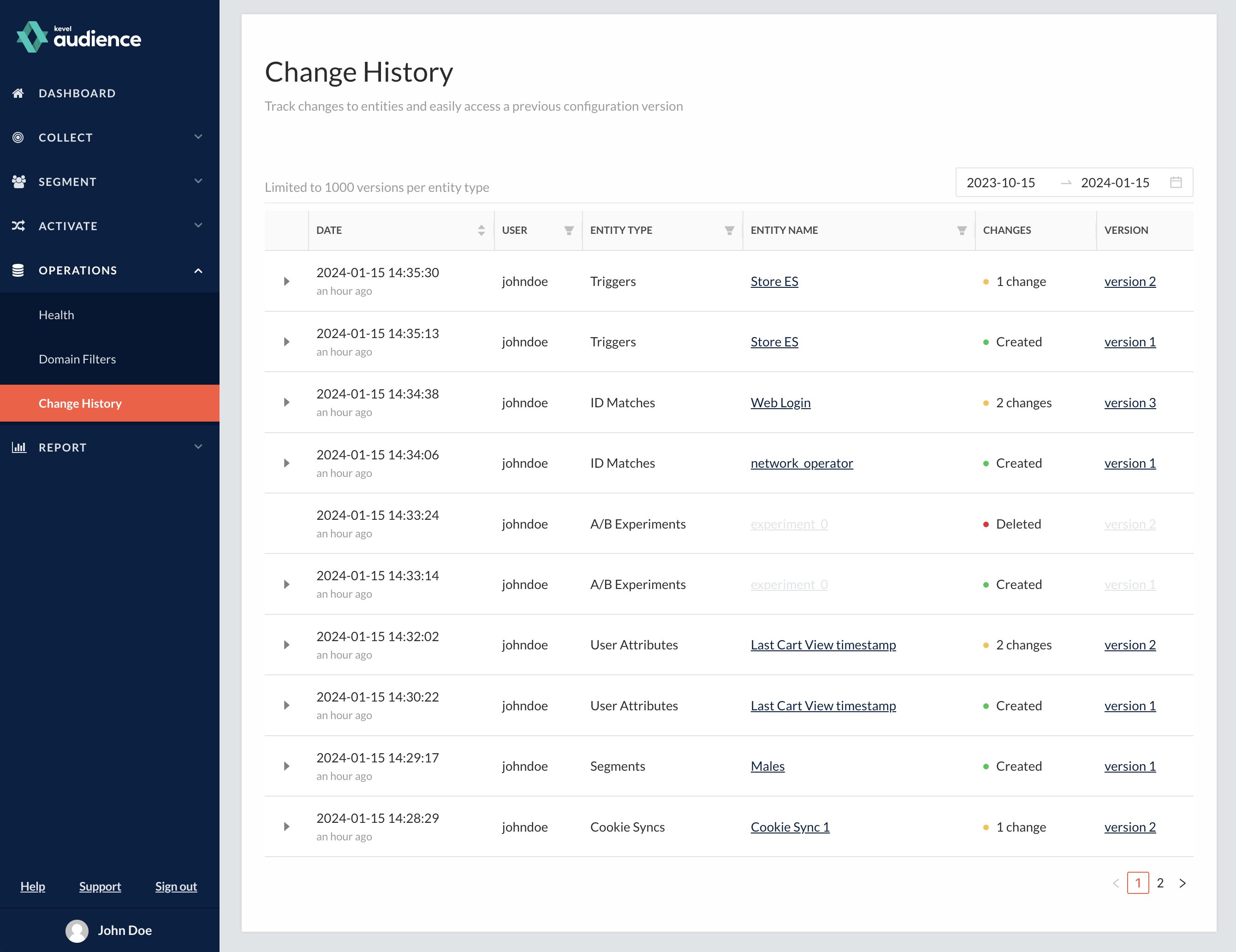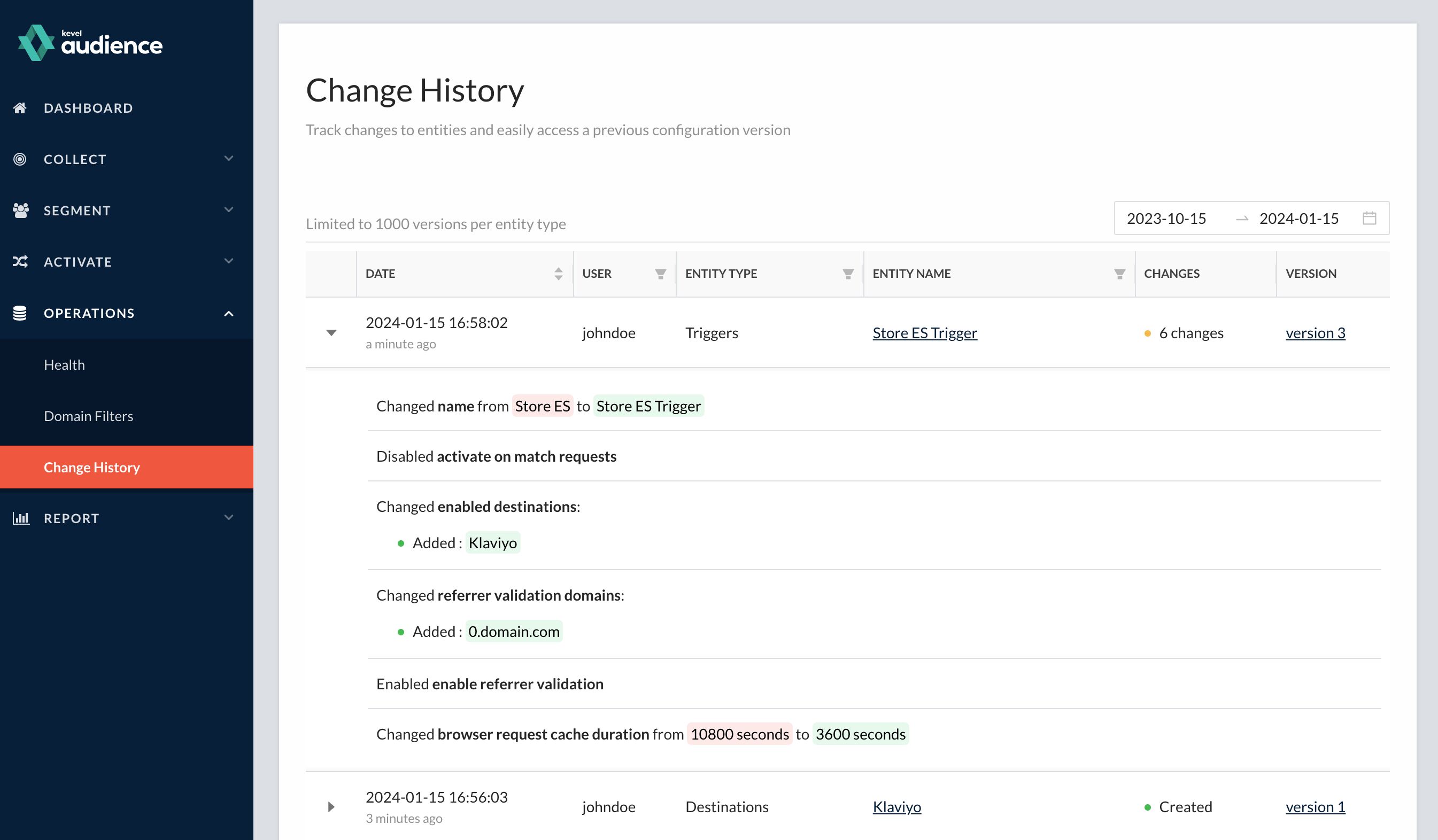2024 Releases
Release 24.4.0
April 2, 2024
In this release, we've made significant enhancements to how we calculate attributes related to the next purchase, ensuring that user data is always up to date. Additionally, we've upgraded our API for custom tracking event types, enhancing its usability and making it more intuitive for users to leverage.
Updated Next Purchase Predictions
The next purchase related attributes, which include the prediction of the next purchase date, the churn factor and purchase cycle, have been updated for increased accuracy. Previously, we would only update these attributes once per day for a user. We now have real-time updates, so the effect of purchases throughout the day is immediately considered.
As a result of this change, the attribute names have been modified according to the following table:
| Previously | Now |
|---|---|
predictions.nextPurchase | predictions.nextPurchase.v2.all |
performance.churnFactor | performance.churnFactor.v2.all |
predictions.purchaseCycle | predictions.purchaseCycle.v2.millis.all |
predictions.purchaseCycle.days | predictions.purchaseCycle.v2.days.all |
predictions.nextPurchase.<category> | predictions.nextPurchase.v2.<category_id> |
performance.churnFactor.<category> | performance.churnFactor.v2.<category_id> |
predictions.purchaseCycle.<category> | predictions.purchaseCycle.v2.millis.<category_id> |
predictions.purchaseCycle.days.<category> | predictions.purchaseCycle.v2.days.<category_id> |
We have also disabled the calculation of these attributes for specific categories by default. Contact your Customer Success Manager if you want to have predictions enabled for specific categories. If you already had a category-specific attribute being used in an existing segment, the calculation was kept active. All existing segments were migrated to use the new attributes.
Improved Support for Custom Event Types
Until now, custom events had to use the event type custom and specify the custom type in a customType field. This schema posed challenges in usability and visibility, for example, in terms of the ability to filter and break down events based on their customType.
To address this, we've enhanced the custom event schema to offer a better user experience:
- Event types can now be any string prefixed with
custom, such ascustomClickOnLoginorcustomSubscribedNewsletter. - Deprecated the
customevent type and the respectivecustomTypefield, which will be phased out.
Previously:
{
"type": "custom",
"customType": "mobileLogin",
<(other event fields)>
}
Now:
{
"type": "customMobileLogin",
<(other event fields)>
}
Events with custom type and a customType field will continue to be accepted, but we encourage users to migrate to the new strategy for improved usability while interacting with events.
All Changes
Click here for the complete list of changes
Release 24.3.1
March 20, 2024
In this release, we are removing the possibility to use automatically generated product interaction attributes in segment construction. Existing segments will be migrated by Kevel's team to the new strategy soon. Users are welcome to manually migrate existing segments earlier, following the recommendations below. Contact your Customer Success Manager if you have concerns. We have also focused on improving the overall performance of processing historic events for generating User Attributes.
Deprecate Dynamic Product Interaction Attributes Use in Segments
Following on the deprecation of Product Interaction attributes, these can no longer be used in Segment rules. These include automatically created attributes about Brands, Sizes, Categories, List, Occasions and Stage Names. Existing segments using these attributes will continue to work but can no longer be edited.
To create new segments or to edit existing segments that require the use of Product Interaction attributes, one is required first to create a User Attribute that extracts the required information from the users' events.
Please note that in the near future, all affected Segments left unmodified will be migrated by having the required attributes created and the segments updated to use those attributes.
Take a look at the Migration guide for more information on migrating the existing segments.
Historic User Attribute Processing
We have improved the overall performance of processing historic events for generating User Attributes. Depending on your attribute definitions and the characteristics of your system, attributes that could previously take weeks to complete their generation can now take a few days or even less.
All Changes
Click here for the complete list of changes
Added
- JavaScript tag propagates "cookies" property in match/activation calls.
Changed
- Improve User Attribute historic processing performance.
- Mark the historic processing of a User Attribute as complete as soon as possible.
Deprecated
- Product interaction attributes are deprecated and can no longer be used in segments.
Fixed
- Persist dashboard's table sort and filters between navigation.
- Match endpoints respect the "cookies=false" query param and ignore an existent request cookie uid when matching user profiles.
Release 24.3.0
March 5, 2024
In this release, we focused on performance improvements and bug fixes.
All Changes
Click here for the complete list of changes
Fixed
- The "HTML - Generic" activation would sometimes show the "Save" button as enabled, even if there were no modifications.
- The change history would include entries even if there were no changes.
Release 24.2.0
February 19, 2024
In this release, we added support for a new e-commerce focused event type, removeFromWishlist. This event describes the action of a user removing a product from a wishlist. This feature unlocks new segmentation use cases, such as "Users who removed products of category X from their wishlist in the last 5 days".
All Changes
Click here for the complete list of changes
Added
- Add support for new event type removeFromWishlist.
Release 24.1.1
January 23, 2024
In this release, we have introduced a centralized view of the history of changes in a system's entities. With this update, users can effortlessly stay informed about any modifications while being given the option to restore previous versions.
Change History
This release centralized tracking changes from any entity, making it possible to learn who changed what, when, and how, accessing the configuration version and comparing it with earlier versions.

Each entry of the change history tracks a version of an entity and includes a detailed description of the fields that were set or modified in that version and how their values have changed since the previous version.

Entities that support version tracking are Match Providers, Cookie Syncs, Segments, User Attributes, A/B Experiments, Destinations, and Triggers.
For more information about this new feature, refer to Change History.
All Changes
Click here for the complete list of changes
Added
- Aggregate configuration changes performed across the CDP's entities on a new "Change History" page.
Release 24.1.0
January 8, 2024
In this release, we focused on bug fixes.
All Changes
Click here for the complete list of changes
Fixed
- Fixed a bug on the Likelihood To Buy, Likelihood To Buy a Category and Event Predictions attributes calculation which improves the probability model's accuracy.